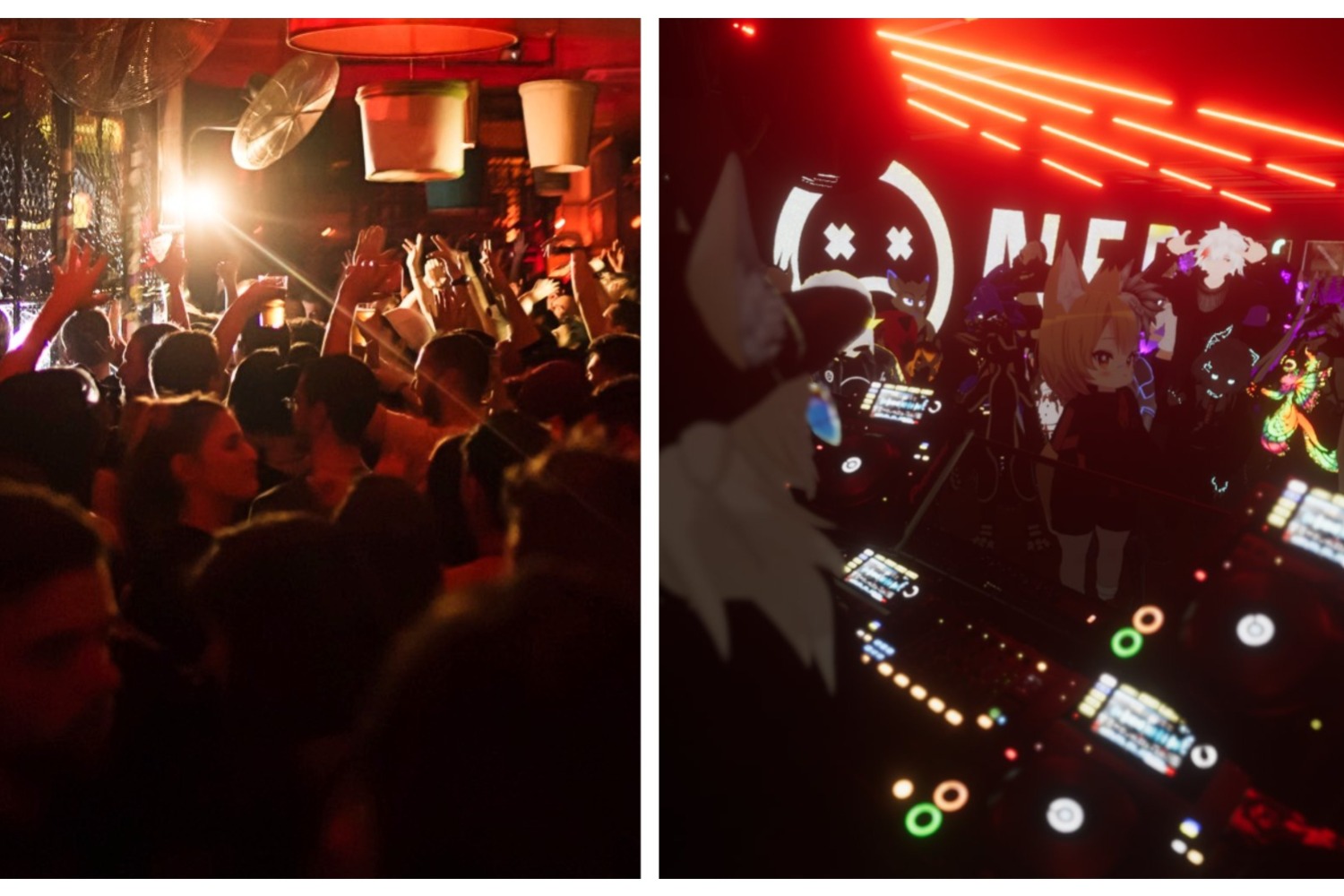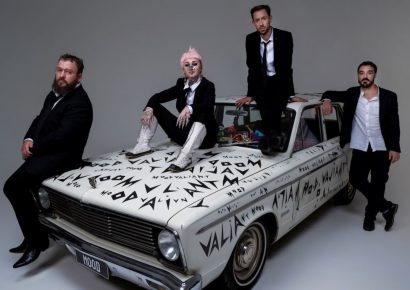Melbourne is home to one of world's most thriving nightlives. So, when the city was locked in by the world’s longest lockdowns, the industry found new ways to ensure that music could continue to shine and be shared.
When the first wave of lockdowns birthed online radio stations and an endless array of collaborations and compilations, it quickly became clear that electronic music was never going to stay quiet. But the largest avenue to emerge was the rise of online music event streaming, and a virtual reality nightlife.
While Mark Zuckerberg’s announcement of Meta came with much debate, many figures in the industry now believe these new mediums are our future, with the pandemic merely acting as a catalyst. The world has reached a new era, where communities will congregate in digital form via virtual worlds.
Check out Melbourne’s most comprehensive, informing range of music features here.
So, with the reopening of dance floors and capacity restrictions lifting, where is the place for VR clubbing and festival events? Despite dance floors returning, the movement is burgeoning forward.
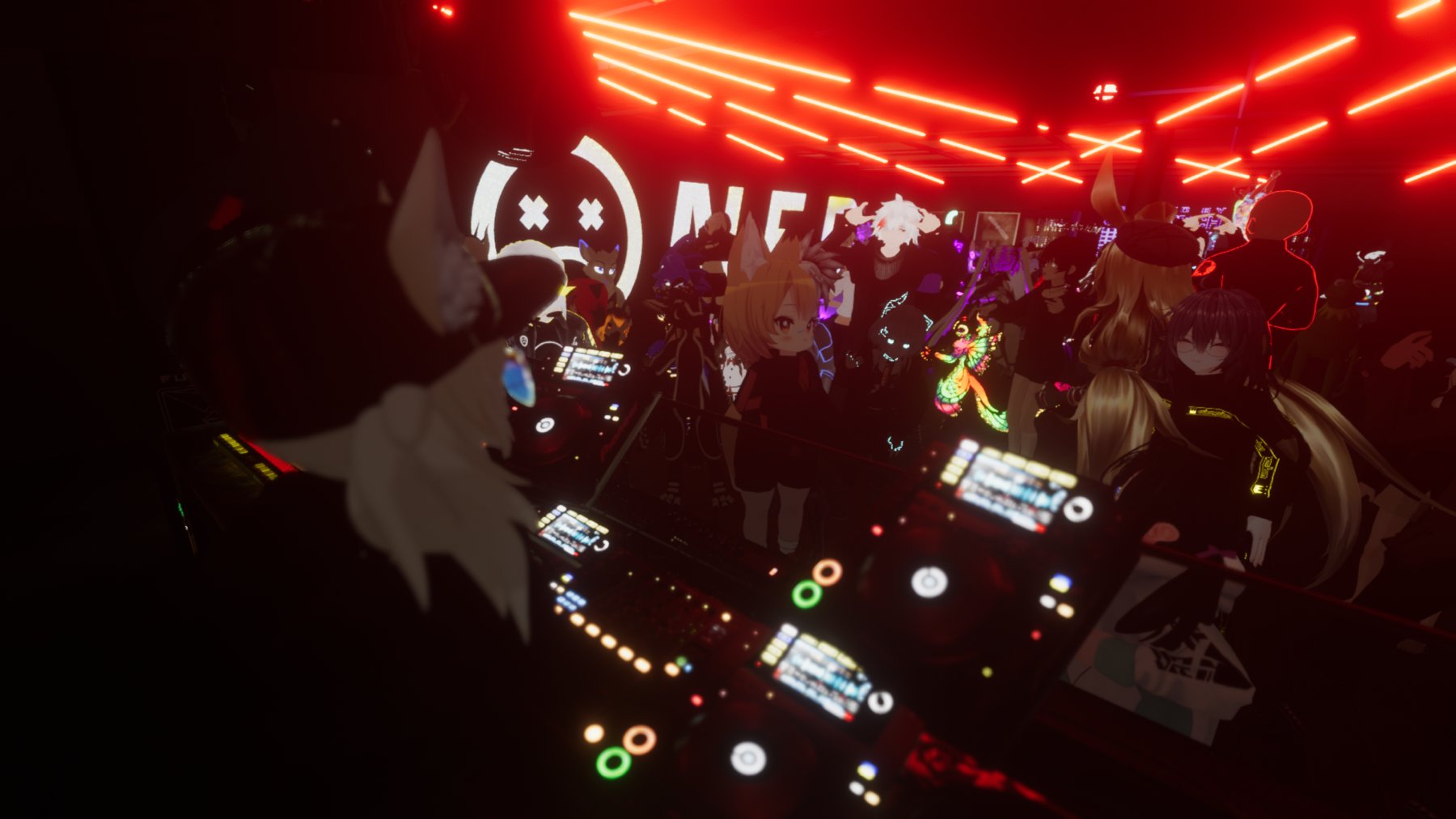
“The event starts with patrons lining up outside the venue usually 30 minutes before the event, kind of like waiting outside in the line for the doors to open,” ,” LONER founder James Lorenz (online name: Zeal) describes.
“Once the doors are open, the first set begins and patrons pile inside. What happens inside is the usual club shenanigans. Some are dancing, some are socialising and drinking, some are messing about in the toilet, the merch shop of the alley out front, or even hanging out by the bar as though they were getting a drink in real life.”
LONER is a VRChat nightclub that flourished during the pandemic and saw its community actually grow when dancefloors returned. The collective showcases alternative electronic music across Japan, USA and Australia, and felt pivoting to VR was a logical decision to build their platform.
Zeal and Lincoln Donelan (Velatix) decided as lockdowns loomed in early 2020 to shift their event focus to the VR space. Their parties, hosted on the free-to-play PC game VRChat, allow patrons to cosplay as anime avatars, interacting with live DJ sets and light shows, as they hit the dancefloor, navigating various venue hotspots and chatting with fellow attendees in real-time.
The online world, inspired by some of the group’s favourite basement nightclubs like Sub Club and The Mercat, features a digital experience devoted to capturing the nostalgic feeling of being in real clubs, some now defunct, at a fraction of the cost required in the physical form.
With live midi controlled lasers, specialised audio, and a wide range of post-processing tweaks to mirror a sweaty, crowded basement club, the events helped mimic the feeling of packed dancefloors, with people yelling at each other over the music, while the fluorescent glow of convenience store lights blind weary clubbers who duck outside for a break.
All of these factors were taken into account when creating proximity to real-life clubbing experiences via their virtual world.
“Over the past 1.5 years since launching the LONER Online gigs we have seen our [physical] audience in Melbourne grow a lot, some from VRChat and some who found our Twitch streams or content on social media,” said Zeal.
“I think at the current rate I see the VR music and online music events space growing further and further as the new underground. The nature of these events being that way is, to me, inherent to the electronic music scene. It’s why I think something as envelope-pushing as VR events is here to stay.”
According to the Australian Institute of Music, live streaming revenues in 2020 hit an estimated US$600million. Artists were forced to seek new sources of income from virtual goods, donations, and attendance within gaming platforms.
While virtual reality DJ sets date back to the times of Habbo Hotel in the early 2000s, the spread of the virus and extended lockdown measures encouraged VR clubs across the world. The initiative #unitedwestream emerged just days after lockdown in Berlin, attracting over 1800 artists who performed to more than 40 million viewers, raising €1.5M in crowdfunded donations.
One of the world’s largest electronic music festivals, Tomorrowland, saw its very first digital festival and with no limits to audience capacity, more than one million electronic music lovers tuned in.
Even Burning Man moved to the virtual world via the Multiverse metaverse app, which mirrored the Black Rock City location as the organisers refused to go a year without the historical desert rave. Punters got the opportunity to experience some of their favourite artists and wander across the dusty landscape, creating their own avatars and hoverboarding from stage to stage.
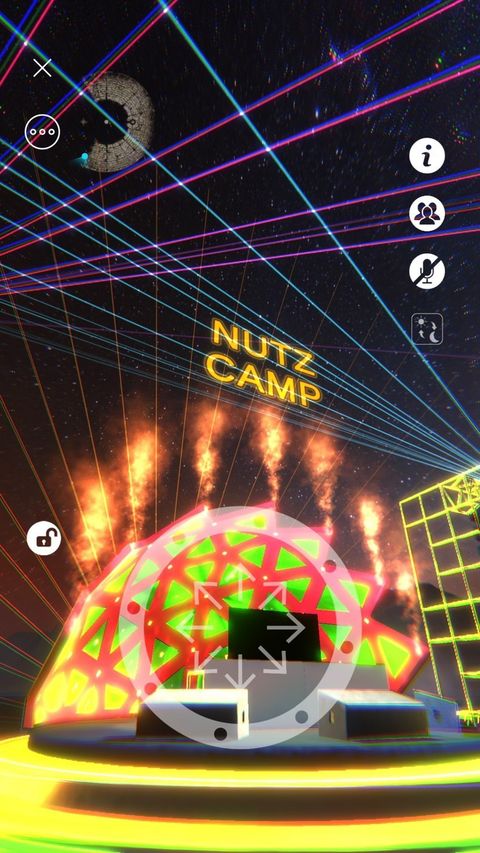
Many promoters have found virtual events are far more inclusive, allowing them to show acts that are otherwise unreachable due to the costs of air travel or ticket prices. For other collectives, it’s the collaboration of events across borders that continue to bear interest, and the return of dance floors only creates more opportunity to bring people together, in both physical and digital form.
Beats for Beds is a fundraiser that started last December in the UK, featuring an online streaming movement as the country entered lockdowns again over Christmas. When the entire music industry shut down again, a collective of crews, including Nein Records, ALFOS, Feed Your Head and Alfresco Festival, banded together to dedicate their time in lockdown to helping those on the fringe of society, forced into homelessness.
The multi-city event will also take place on 17 December, and will see hundreds flock to Revolver Upstairs, with Beats for Beds’ MixCloud being the main dance party hub. Punters can donate at any time across Manchester, Canada, Scotland and closing Sunday night in Leeds.
For Iain Mac of Stockholm Syndrome Australia, the moment he saw the fundraiser event emerge in the UK, he knew he wanted to be involved and bring it to Melbourne. A few Aussie lockdowns later, it developed into six in-person events and a 72-hour relay race live stream, bouncing across the globe.
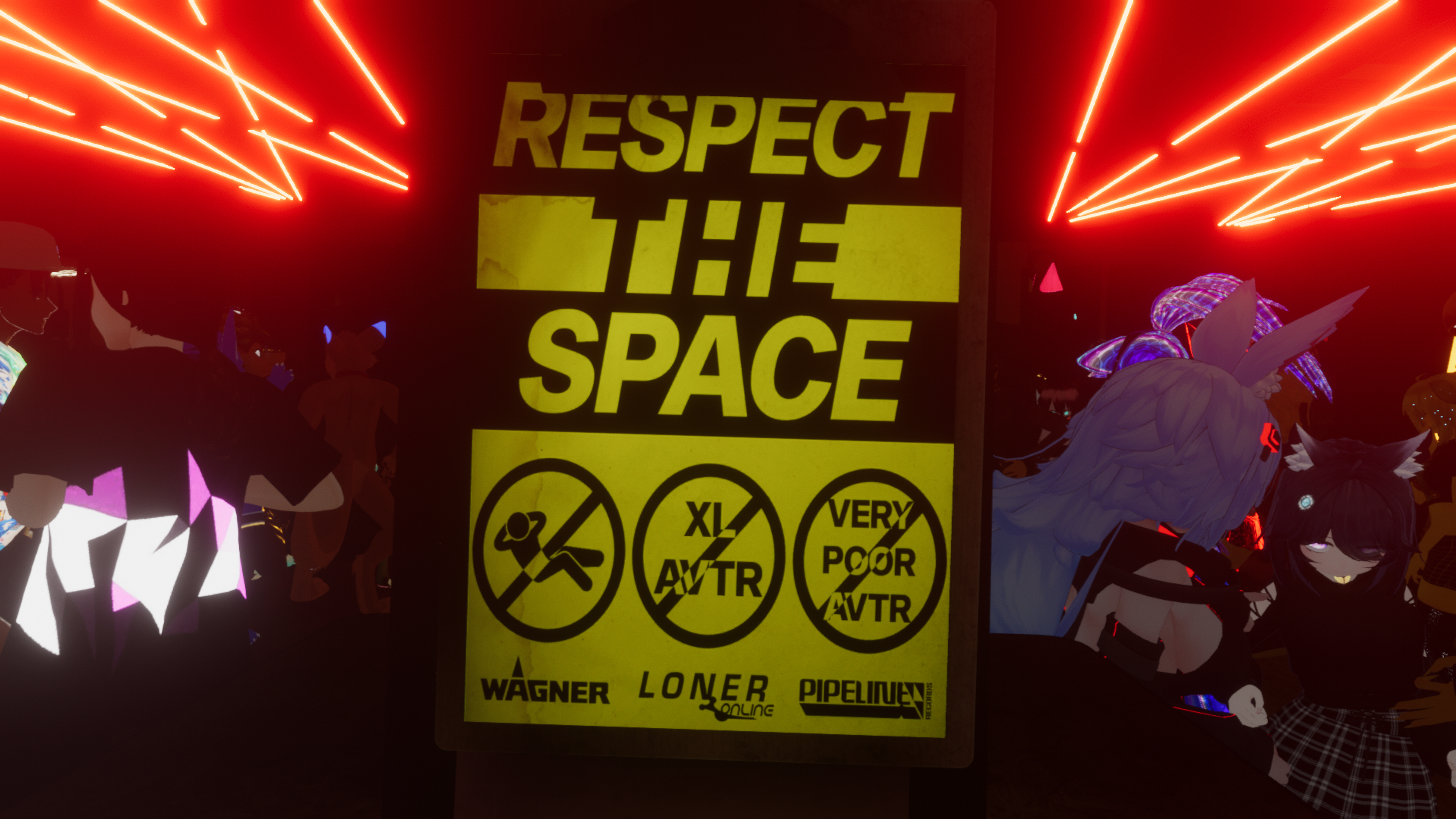
“The world was expressing something unprecedented and as a result, we had to adjust the way we live,” Mac says. “It’s in the virtual spaces where we’re able to book tours, collaborate, release and connect with other musicians and like-minded communities. This is just the next addition to that.”
Mac felt that streaming could be considered “egocentric” during the early stages of the pandemic. Over the last year, his opinion changed: “I’m a firm believer that streaming and self-governed online communities are absolutely the way things are going, so it’s best to embrace it as soon as possible.”
Mac believes more in-real-life events will be streamed simultaneously as the physical form takes place, and events will have crews set up specifically to manage the streaming of comments during these nights, with a focus on engagement and wider audience interaction.
He says many of these relationships transcend well beyond the online world, like the collaborations of music production. They also become a catalyst to create important events for important causes, like Beats for Beds and other charity fundraisers.
“The rise of social media and online gaming is changing the way we connect, with the next generation primed for this,” he continues.
“Kids get home from school and jump straight online, building relationships digitally, forming online communities. Meetings and connections can come in both forms. We’re seeing so many more of these channels popping up, whether that be HOR, Echo Box, Kiosk Radio or World FM. I think the ability to tune in and connect wherever you are is so important. Maybe you prefer to stream the event live, or you prefer to check out in real life.”
With a new generation turning 18-years-old in lockdown, VR has given a generational opportunity to trial and gauge a variety of networks and club cultures before diving headfirst into their chosen IRL nightlife. As online and offline events continue to shift amidst our changing world, the relationship between the two feels destined to produce newfound opportunities for artists, promoters, organisations and their loyal audiences alike.
Check out Beats for Beds here.
